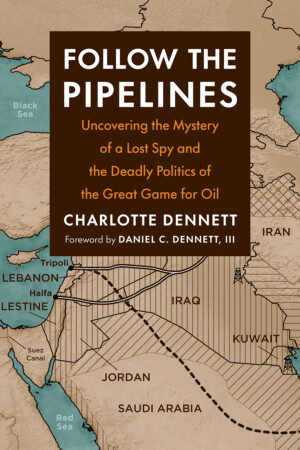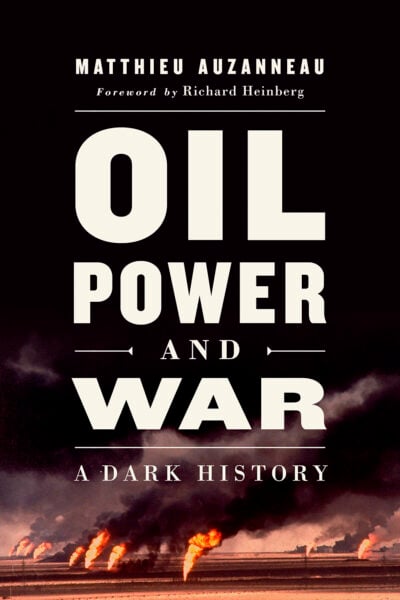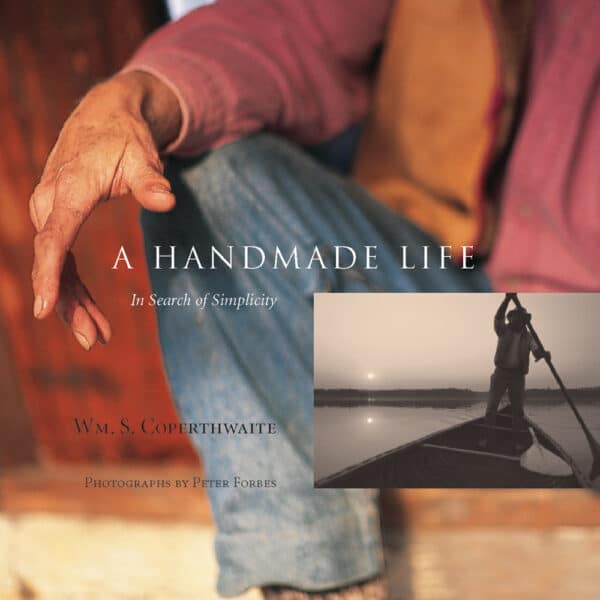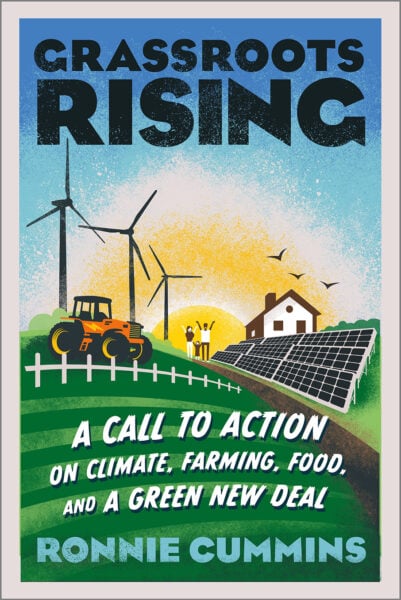A Life-Changing Discovery: Introduction to Pipeline Politics
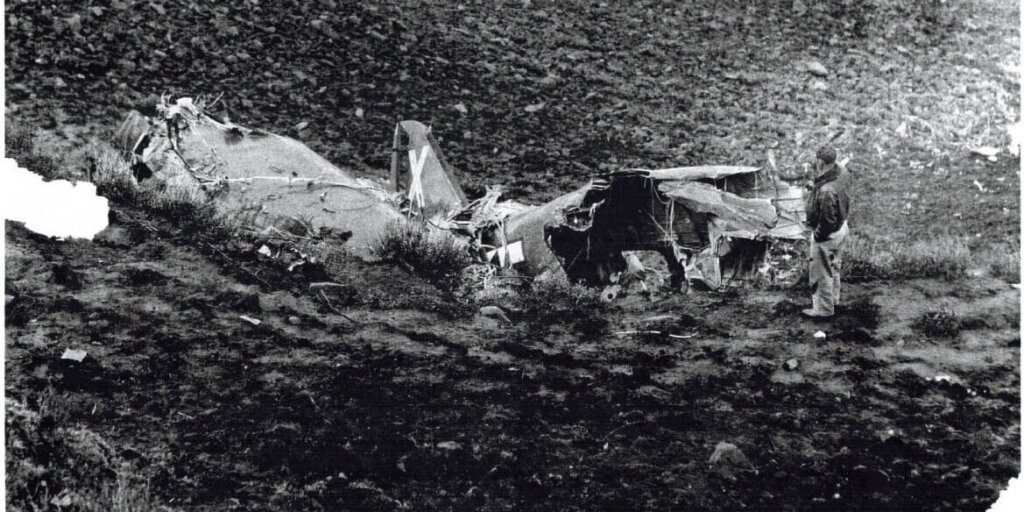
The control of oil has been at the center of the struggle for power and wealth that has fueled conflict and endless wars throughout the Middle East. When author Charlotte Dennet found the last letter from her father, a spy studying the route of the proposed Trans-Arabian Pipeline, she realized his death was likely much more entangled political intrigue than she was lead to believe.
Part personal pilgrimage, part deft critique, Dennett’s insightful reportage examines what happens to international relations when oil wealth hangs in the balance and shines a glaring light on what so many have actually been dying for.
The following is an excerpt from Follow the Pipelines by Charlotte Dennett. It has been adapted for the web.
Prefer Audio?
Listen to the following excerpt from the audiobook of The Crash of Flight 3084.
My introduction to pipeline politics actually began in late 1975, after I left Lebanon, then ravaged by civil war, and my job as a reporter for the Daily Star, an English-language newspaper in Beirut, to return to the States. I had been shot at during the buildup to the civil war, and I decided that I was not keen on losing my life at a young age in a war that made no sense.
I joined my brother, also named Daniel Dennett, and his family for Christmas dinner at their home in North Andover, Massachusetts. After regaling them with tales of my travels throughout the Middle East, I was suddenly struck by the realization that I had been retracing many of the steps of our late father when he was sleuthing in the Middle East in the mid-1940s under the code name “Carat.”3
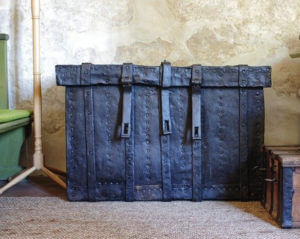
My Christmas-dinner epiphany prompted me to venture up into the attic to search for an old steamer trunk I had found in my mother’s attic as a youngster.
Back then, it had beckoned me to open it, but as I dimly recalled, I had been distracted by my grandmother’s exotic costumes from her days as a biology teacher at a Christian college for girls in Constantinople (now Istanbul) in 1900. They had been draped over the trunk, and so I paid little attention to what lay inside.
After my mother’s death, the steamer trunk was transferred to my brother’s attic, where I happily found it under a sunlit eave. This time, with an anticipation I couldn’t have begun to match in childhood, I opened it and found—to my astonishment—a blanket wrapped around a scrapbook crammed full of photographs of Turkey at the turn of the century.
Beneath it lay three more scrapbooks. One traced my father’s youth through public high school, then Harvard and, upon graduation, teaching assignments at the American University of Beirut in the early 1930s; the other two were full of photos and letters from my father and mother in Beirut to my grandparents in Winchester, Massachusetts, dating from 1944 to 1947.
I immediately pulled out the last scrapbook and carefully turned one brittle page after another, looking for letters and newspaper clippings that led up to the time of his death. Sure enough, there was the fateful telegram to my mother informing her of the plane crash in Ethiopia.
After that came a frayed yellow obituary from the Winchester Star, which stated that my father had been on a “vacation junket” to Ethiopia. Better yet, inserted into the pages of the scrapbook were two folded documents, one identified in my mother’s handwriting as “Dan’s last report” and the other, “Dan’s last letter home.”
For a few minutes I sat very still, realizing that these were the final reports from my father about his last days on earth. I was too excited to contemplate the fact that my mother had never told me of their existence, or that she and her mother-in-law had prepared these scrapbooks for someone in the family to eventually discover as a treasure trove of my father’s life and death—in short, his legacy.
Pasted into the scrapbook were letters of condolence from his professors and his peers. His German professor at Harvard, John Waltz, wrote, “In my nearly 50 years of experience with college students, few have made such a strong and lasting impression upon me as your son. . . . He seemed to me to represent the best New England traditions: open mindedness, fairness, tolerance, [and] humaneness and did not depart from them in the most trying times. He had wise intellectual and artistic interests.
He was the type of man that is most needed in America at the present time and in the immediate future.” It helped to read those words, to learn from someone other than family members that there had been good qualities to the man, at least when he was a student. But I couldn’t help wondering: Had he been tolerant and humane as a spy? After all, my attic discovery occurred at a time when all sorts of sordid revelations were being reported about the CIA in the aftermath of the Vietnam War. Did they apply to the CIA’s predecessor organizations as well? Did they apply to my father?
 I found a telegram from the director of the Office of Near Eastern and African Affairs at the Department of State, Loy Henderson, stating that Dennett’s “record of service was outstanding.”
I found a telegram from the director of the Office of Near Eastern and African Affairs at the Department of State, Loy Henderson, stating that Dennett’s “record of service was outstanding.”
That kind of tribute could perhaps be expected—although I later learned that Henderson was a very big fish in the State Department and, in a break with protocol, often received many of Dennett’s secret reports directly, without review by intermediaries, a rare practice.
Perhaps most interesting was a letter from the American minister to Saudi Arabia, J. Rives Childs, reporting to the American minister* in Beirut, Lowell Pinkerton, that “Dennett arrived [in Riyadh] about March 14 from Dhahran and was of great help to us in the information he was able to give me concerning the pipeline negotiations.
He had an exceptional mind and indicated by his eagerness to learn and willingness to impart his knowledge that he possessed exceptional qualifications as an Officer of Our Government.”4(emphasis added)
Reading through my father’s last letter and his last report, I concluded that his mission to Saudi Arabia was fraught with political intrigue. He was charged with inspecting American oil installations at the headquarters of the Arabian American Oil Company (Aramco) in Dhahran and determining where the Trans-Arabian Pipeline (also known as TAPLINE) should cross the Arabian Peninsula, what countries it would traverse, and where it should terminate on the Eastern Mediterranean coast.
His official report to Minister Childs described a top TAPLINE negotiator expressing deep frustration—not with the Saudis, but with the Syrians over their reluctance to grant pipeline transit rights over Syrian territory on the terms offered by the American oilmen. TAPLINE’s William Lenahan “was in a gloomy and angry mood,” Dennett wrote.
“He was finished with the Syrians. . . . Shortly after we reached Dhahran he told me that he had been criticized by Aramco and Standard officials for talking too freely about the pipeline project [to me]. He asked me under no circumstances to reveal while I was in Dhahran that I knew anything about or was interested in the pipeline negotiations. I agreed.” (Being a loyal government employee, however, Dennett ignored Lenahan’s warning and, as noted by Childs, gave a detailed report on his visit to Saudi Arabia.)5
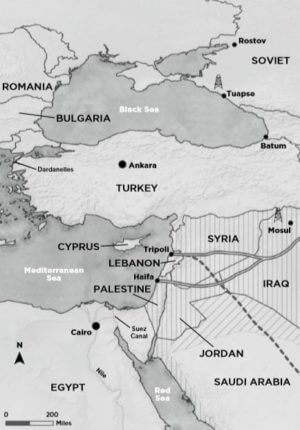
A New Pipeline for the Middle East. This map is adapted from an extraordinary map published in the New York Times just two weeks before the 1947 plane crash that killed Daniel Dennett. That original map provided my first introduction to pipeline politics. Like this one, it showed a projected route of the Trans-Arabian Pipeline, but its accompanying. . .
My father’s last letter to my mother was more intimate and colorful, expressing his awe and fascination with this new American enterprise and the walled-off, suburban-like community it had created in the middle of the desert, sitting on top of one of the richest oil finds in the world.
He mused over the future of Arabia and noted, “The most interesting thing of all was seeing the plans now under foot for building new Arab towns, laying on electricity, drinking water, medical and hospital services, good sanitation. . . . No one knows just how large the biggest [oil] field is, but they have drilled 27 wells so far over an area 15 miles long and 8 wide and they haven’t drilled a dry well yet.”
His letter ended cryptically. He was not heading back to Beirut as originally planned. “For reasons I will tell you later,” he reported to my mother, “I am going to Ethiopia. . . .”
From the contents of his last report and last letter home, I concluded that, in contradiction of his obituary, his subsequent flight to Ethiopia was no “vacation junket.”
Did government officials tell my grandparents what to leave in and what to leave out of the obituary? Or did they self-censor because they knew (or did they?) that he was on a top secret intelligence mission? Was this why there was no mention of his trip to Saudi Arabia? I couldn’t ask my grandparents, who were long gone, or my mother. Where could I go for answers?
There was no World Wide Web at this time. But of course there were libraries. Thankfully, the Howe Memorial Library of the University of Vermont was located in nearby Burlington.
I went straight to its reference department on the first floor, which housed thick multivolume indexes to the New York Times. I pulled out the 1947 volume and began to search for articles on the Middle East and Saudi Arabia. What turned up was truly eye opening.
An article in the Sunday Times, dated March 2, 1947, appeared three weeks before the airplane crash under this headline: “Pipeline for U.S. Adds to Middle East Issues: Oil Concessions Raise Questions Involving Position of Russia.” It could not have been more to the point, and as I write now, over seven decades later, I can’t help but marvel over its relevance to today’s concerns with Russia.
Datelined Cairo, and written by Clifton Daniel (later to be President Harry Truman’s son-in-law), it began: “By 1950 more than one hundred million American dollars will have been laid out across the Arabian and Syrian deserts and the territories of four Middle East countries in the form of a pipeline from Saudi Arabia to the Mediterranean coast [emphasis added; apparently, the developing problem of transit rights across Syria was not known to the reporter].”
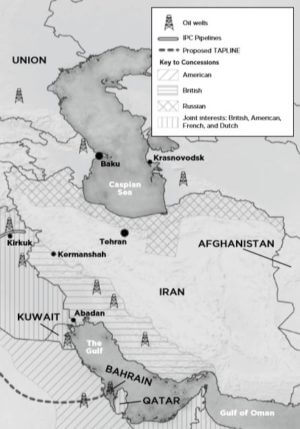
. . .article, “Pipeline for U.S. Adds to Middle East Issues,” put the pipeline and Dennett’s last mission to Saudi Arabia into a larger context: a big-power rivalry over oil, especially with Russia, that has continued to this day. The map also showed the two branches of the older Iraq Petroleum Company (IPC) pipelines, constructed in the early 1930s, which had equally profound significance to Middle East issues.6
The next paragraph was even more telling: “Protection of that investment and the military and economic security that it represents inevitably will become one of the prime objectives of American foreign policy in this area, which already has become a pivot of world politics and one of the main focal points of rivalry between East and West.”
The East, of course, was the Soviet Union, another rising superpower after World War II. Clearly, the Soviets’ growing influence in the Middle East was being seen as a matter of national security.
Two paragraphs down, the article described this pipeline (“one of the world’s largest and longest”) as being a possible source of conflict between the United States and Great Britain. It meant “laying down another major American interest in the Middle East parallel to that of the British.
The Anglo-American partnership, rattled this week by the renewal of faultfinding on the Palestine issue, will be further consolidated or—another possibility—new areas of contention between the two countries will be created.”
If the mention of Palestine was not enough to heighten my interest, the article brought another major player, France, into the possible fray: “France has formally demanded to know why she, a partner with the British, Americans, and Dutch in the Iraq Petroleum Company, was left out of the recent deal by the partners to share in the extraction and sale of Arabian oil.”
This was my first hint of rivalry among America’s erstwhile allies over postwar oil in the Middle East.
But perhaps the best part of the article was the map that accompanied it.
Titled “A New Pipeline for the Middle East,” it showed the dotted line of the projected pipeline extending west across Saudi Arabia, Jordan, and Syria to a terminal point in Lebanon. The line ran across the British-controlled Iraq Petroleum Company (IPC) pipeline that terminated in Haifa, Palestine, and into the French-controlled IPC pipeline that terminated in northern Lebanon near the Syrian border.
Both pipelines were branches of the IPC pipeline originating in oil fields near Kirkuk, Iraq, and built in the early 1930s. Seen from the bird’s-eye vantage point of a map reader, it looked as though the proposed Trans-Arabian Pipeline was butting a proverbial camel’s nose under the tent of two colonial powers, which (as I soon learned) did not welcome the intrusion.
Notes
* During and immediately after World War II, ambassadors to the Middle East were referred to as “ministers” and the embassies were called “legations.”
3. I would eventually learn that Dennett had been given the code name Carat to distinguish him from other OSS agents with names like “Squirrel,” “Pony,” and “Stallion.” I mention this not to boast, but to convey that someone held in this high regard deserved to be understood and remembered instead of obliterated from history due to his death at the young age of thirty-seven. A CIA historian agrees, as noted in chapter 7.
4. J. Rives Child to Lowell Pinkerton, March 22, 1947. Letter in the author’s possession.
5. Daniel C. Dennett, “Memorandum to the Minister at Jidda,” March 15, 1947. Memorandum in the author’s possession. It has, however, been declassified, as I found a microfilmed copy in the National Archives in Record Group (RG) 59 of State Department records concerning Saudi Arabia. See LM 162, reel 67, US State Department files 1945–49, Saudi Arabia, Internal Affairs.
6. Clifton Daniel, “Pipeline for U.S. Adds to Middle East Issues: Oil Concessions Raise Questions Involving Position of Russia,” New York Times, March 2, 1947.
Recommended Reads
Recent Articles
Addressing the pressing issues affecting everyday Americans is essential—and one of our nation’s most profound challenges is the devastating impact of mass layoffs. Layoffs upend people’s lives, cause enormous stress, and lead to debilitating personal debt. The societal harm caused by mass layoffs has been known for decades. Yet, we do little to stop them.…
Read MoreWhat does facing the beast mean? In this time of uncertainty, we must practice regular reflection to achieve optimal happiness and health. The metaphor below gives insight into confronting and facing it, regardless of what “the beast” is to you. The following is. an excerpt from Facing the Beast by Naomi Wolf. It has been adapted for the…
Read MoreWe’ve all heard of the phrases “time flies” and “time heals all wounds,” but what really is time, and how does it impact our lives? The concept of time may be even more powerful than we think, especially when it comes to the money we save and spend. The following is an excerpt from The…
Read More“Climate change asks us questions that climate science cannot answer,” — Dougald Hine When it comes to climate change, it seems as if there are always new questions arising: How did we get to this point? How can we stop it? What’s next? Unfortunately, there is no black-and-white, straightforward answer to any of them —…
Read MoreDougald Hine has spent most of his life talking to people about climate change. And then one afternoon in the second year of the pandemic, he found he had nothing left to say. Why would someone who cares so deeply about ecological destruction want to stop talking about climate change now? In the excerpt below, Hine…
Read More

